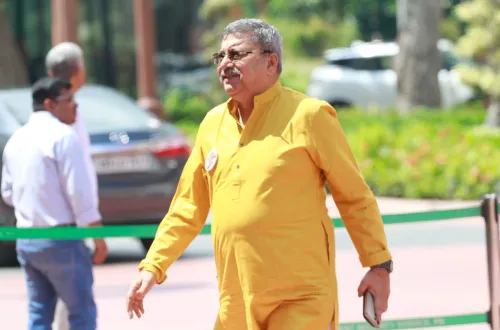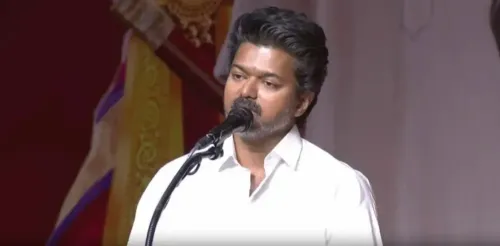How is the Pakistan Army Reinventing Terror Groups?

Synopsis
Key Takeaways
- Direct Oversight: The Pakistan Army is directly overseeing the training and operations of terror groups.
- Technological Upgrade: These groups are being equipped with modern weaponry and drones.
- Strategic Focus: The goal is to maintain pressure on India while addressing internal challenges.
- Funding Commitment: The ISI is investing heavily in these organizations, with substantial annual budgets.
- Regional Implications: This development poses a significant threat to India's national security.
New Delhi, Sep 28 (NationPress) Pakistan is actively working to rejuvenate three terrorist organizations that suffered significant setbacks during Operation Sindoor. The primary emphasis is on Jaish-e-Mohammad, Lashkar-e-Taiba, and Hizbul Mujahideen.
To enhance the operational effectiveness of these groups, the Pakistan Army has opted to station its own personnel to train new recruits. This marks a substantial departure from the previous model, where a commander trained by the army would lead the camp operations.
Henceforth, all training facilities for these organizations will be supervised by officers of Major rank, with the camps under the protection of the Pakistan Army.
In addition to this direct oversight, the ISI is ensuring a technological upgrade across all camps. These facilities will be equipped with cutting-edge technology to bolster their capabilities.
The ISI is transitioning these camps from standard weaponry to advanced modern arms, including high-tech drones capable of targeting areas in Jammu and Kashmir.
Moreover, these groups will leverage digital warfare tools extensively. With Pakistan Army officials supervising all operations—from recruitment to training—the aim is to equip these organizations with weapons that can be launched directly into India.
This transformation signifies a notable change in the modus operandi of these terror organizations. According to officials, several factors contribute to this shift.
Firstly, the ISI seeks to prevent these camps from being targeted again during Indian military operations. Secondly, Pakistan aims for its terror outfits to possess the capability to strike India from within its borders. Finally, it intends to distract the Indian Army with these groups, allowing the Pakistan Army to address challenges posed by the Balochistan Nationalist Army (BLA) and Tehreek-e-Taliban (TTP).
Given Pakistan's current obligations to both the US and China regarding security in Balochistan, the focus is now more on the TTP and BLA rather than engaging with the Indian Army.
Pakistan has entered into a minerals agreement with the US and is under pressure to secure Balochistan. Likewise, it has assured China of securing the China-Pakistan Economic Corridor Project 2.0 (CPEC), necessitating control over both the TTP and BLA.
Given these circumstances and the Pakistan Army leadership promoting its ties with China and the US, it has no alternative but to retract its security assurances.
The minerals deal holds significant importance for Pakistan, especially amid its struggling economy.
Additionally, China has urged Pakistan to raise funds for CPEC 2.0 if it wishes to remain involved, further complicating Pakistan's position as it must now secure funding while ensuring project security.
Pakistan was previously warned by China due to its inadequate protection of Chinese interests during CPEC 1.
Given all these elements, the Pakistan Army is heavily investing in these three terror groups, actively soliciting large donations from individuals in the Gulf nations.
To achieve the goal of modernizing these organizations with advanced weaponry capable of directly targeting India, the ISI has committed to investing at least Rs 100 crore per terror group annually.
Considering these financial commitments, the Pakistan Army has decided to take full control and oversee all facets of these terror groups. This means the leaders of these organizations will have limited roles, primarily focused on indoctrinating and radicalizing youth to join their ranks.









